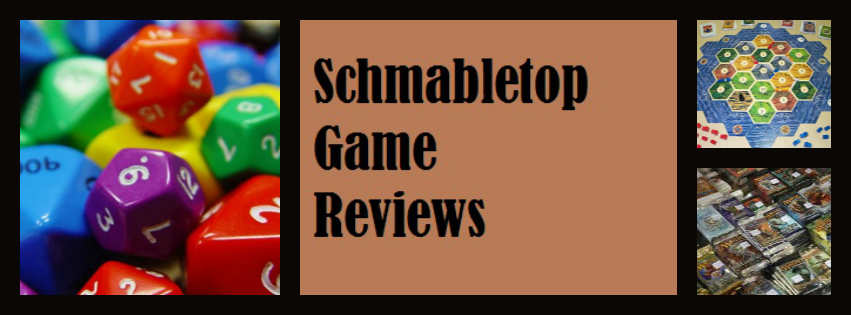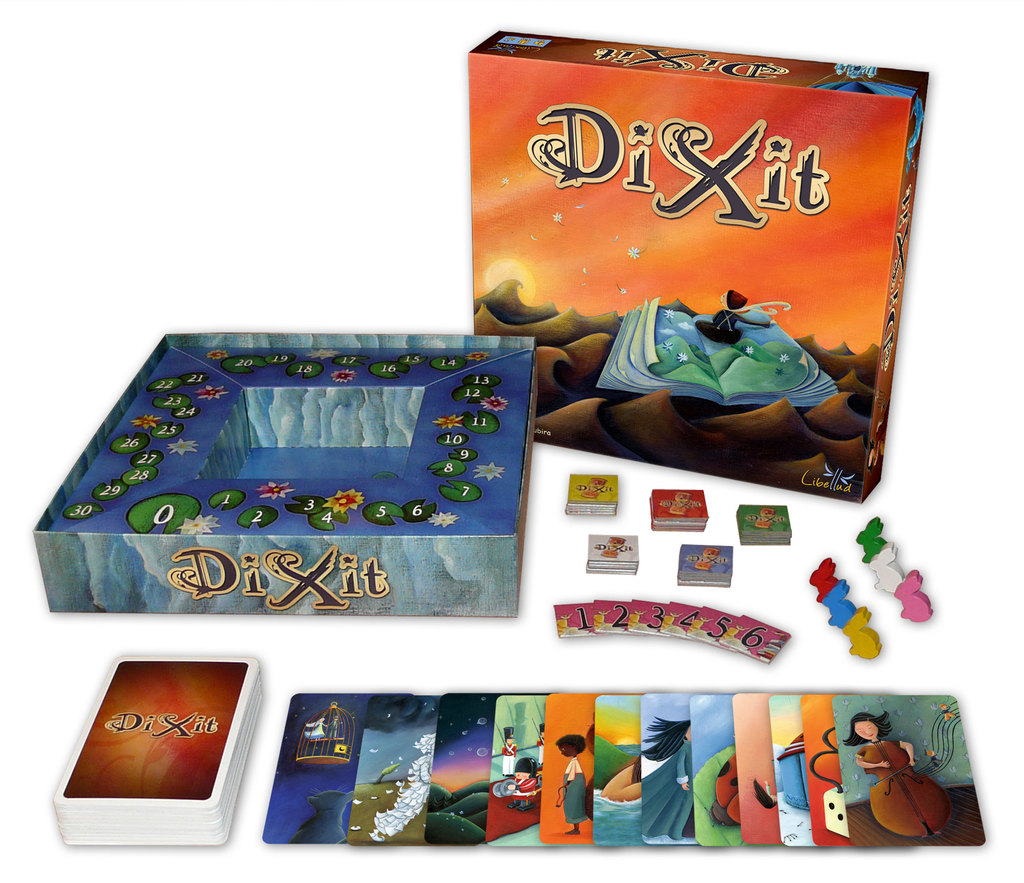Schmabletop Review: Dixit
Full disclosure: I don’t know how to pronounce this game. I always say “dix – it,” but then I heard someone say the game was originally French, so maybe it’s pronounced somewhat differently. Oh, what’s that? All you care about is whether the game is fun?
Well that I can help you with. It’s excellent, go buy it.
… oh, you want more details? Wow, you’re really demanding, hypothetical reader. Fine, I guess I’ll tell you about the game.’
Dixit
Gameplay:
Dixit is probably the simplest game we’ve reviewed on Schmabletop, though mastering being good at it is somewhat tricky (and changes based on who you’re playing with). Each player receives a set of cards with a random picture on it; there are no other markings on the card. One player, who becomes the Storyteller, places a card face down on the table and gives a hint at what the card looks like – a word, a tune from a song, a poem, whatever the player can think of. Other players look at the pictures they have and try to find one that also matches the hint the first player gave.
After everyone has placed a card face down on the table, the Storyteller shuffles the deck and lays them out on a small board in positions 1-6, depending on how many people are playing. Each player then bets on which card was the Storyteller’s card.
This is where the simple game mechanic of Dixit comes in: in order to score points, the Storyteller needs some of the other players to select his card, but not all of them. If at least one player picks his card, the Storyteller gets 3 points. If all the players select his card, he gets zero and the others all get 3. The other plays get 3 points for selecting the Storyteller’s card, and also an extra point for each player who incorrectly picked their card as the Storyteller’s. Play then rotates and the next person becomes the Storyteller.
The trick, then, is to be specific enough to get at least one person to pick your card, but vague enough to leave the others lost. This is how the game changes when you play with different groups: half the time your searching for a card that will trigger an inside joke with one person at the table.
Setup:
Setup is as basic as you can get. Simply lay out a small board (which is even optional, it just orders the cards on the table to make voting smoother and has a chart for making score-keeping easy), shuffle a deck of cards and deal everyone a hand.
Expansions:
Dixit is an incredibly simple game to expand because you don’t need to worry about anything; the cards just have pictures on them, so there’s no sets or deck types. There are a few larger, “full” expansions that you can get for the game, which are essentially a whole new kit with a board and an entire set of cards. The copy I have is actually one of these expansions (Dixit: Journey) and it plays just like the original game but with different cards. There’s also the “Dixit: Odyssey” expansion which increases the maximum number of players from 6 to 12 and adds a few extra accouterments to make score keeping easier.
Cost:
Dixit runs pretty average for a board game, somewhere in the $20-30 range. I was a little disappointed that the cost wasn’t lower considering the simplicity of what is included with the game, but I have gotten good value out of the copy I bought. The larger expansions like Odyssey can run up to $40.





